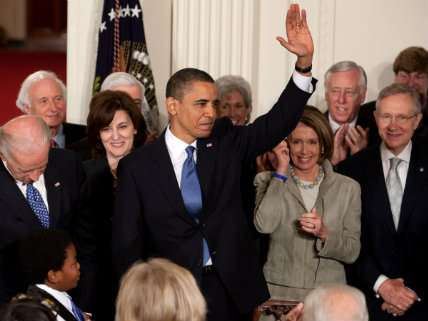More Health Insurers Seek Double Digit Premium Increases Under Obamacare

The past month has provided a few hints that the relatively modest premium increases we've seen under Obamacare may not last for long, and today brings a few more.
In Maryland's largest health insurer has requested rate hikes up to 30.4 percent for the vast majority of its members, reports the Baltimore Sun. Large insurers in several other states are officially targeting double-digit increases as well, according to Jed Graham of Investor's Business Daily. Tennessee's biggest insurer, BlueCross Blue Shield, which covers 165,000 people in the state, has asked for a 36.3 percent hike, and the top insurer in Michigan is looking at a 9.8 percent hike.
Why the big hikes? The 25.6 percent rate increase sought by Moda Health, which covers 100,000 people in Oregon, may provide a clue: As Graham notes, costs for the health plan exceeded premiums by 61 percent in 2014. The next largest insurer in the state is also seeking a double digit rate increase. Basically, the premiums charged so far aren't an accurate representation of how much it costs to cover the people who are enrolled.
This is the big question going forward for Obamacare premiums: Are the modest average increases we've seen so far really sustainable? Or are we seeing what are essentially "teaser" rates that will have to be raised once costs are factored in?
It's entirely possible that regulators will push back against plans that request big hikes, as they did last year. But insurers this round will have more data with which to argue for increases going forward: This year's rates are the first in which insurers have a full year's worth of cost data on which to base their rate requests.
Regulators have some incentive to push back where they feel they can, but consumers may not have to worry too much about higher rates, because, as Graham notes, most are subsidized, which limits the pocketbook impact of any hike. But if consumers aren't too affected by those hikes, then that means the taxpayers who ultimately fund those subsidies will end up paying for them instead. Somewhere down the line, someone always has to pay.


Show Comments (107)